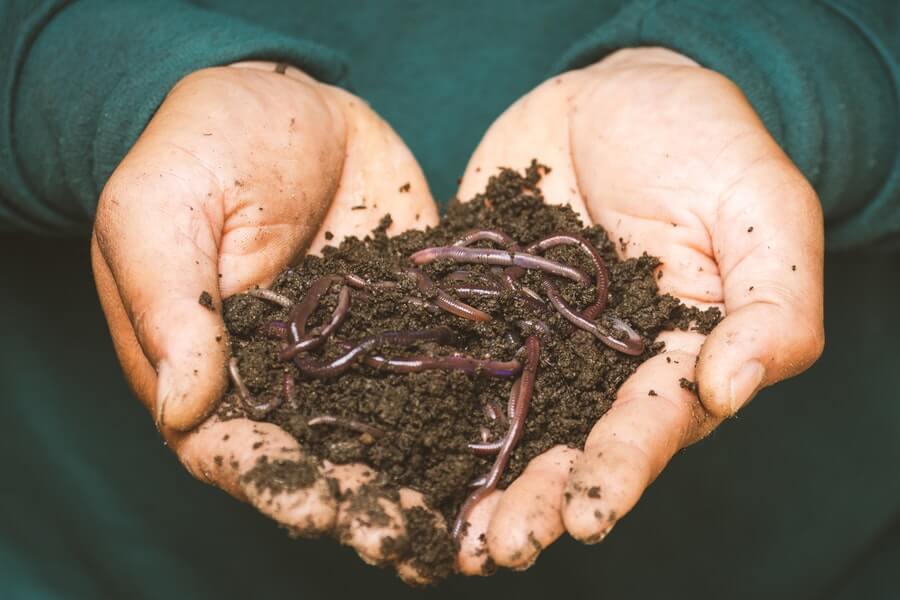A research team of scientists at the University of Georgia has found some disturbing facts about how the multidrug-resistant Aspergillus fumigatus can be found in everyday gardening products, such as soil, compost, and even flower bulbs. This fungus is notorious for being lethal, specifically in people who have compromised immune systems, and the World Health Organization has listed it as one of the major threats to public health.
Gardening is a great delight for many, owing to its soothing nature and proximity to nature. However, unsuspected Aspergillus fumigatus in commercially available gardening materials indicates that it is linked to a serious health risk for both hobby and professional gardeners. Marin Brewer, lead author on the study and a professor at UGA’s College of Agricultural and Environmental Sciences, expresses deep concerns about health hazards resulting from being exposed to these products without an understanding of the risk.
“Many people, I think, don’t really associate gardening with the risk of death,” said Brewer. “Most people don’t realize that working with compost or flower bulbs might cause serious illnesses, especially when people are not at full capacity—like the elderly or those that have weakened immune systems.”.
These include socially deprived people; those with underlying illnesses—in particular, chronic obstructive pulmonary disease, cystic fibrosis, and Type 2 diabetes; HIV/AIDS patients; people with cancer under treatment; and patients treated with immunosuppressive drugs. Even healthy people, researchers highlighted, would fall ill upon infection with some of the multidrug-resistant isolates of the fungus Aspergillus fumigatus.
Aspergillus fumigatus is a well-known human pathogen and the causative element of aspergillosis, a disease that affects millions of people around the world yearly. In patients with invasive aspergillosis, the mortality rate is extremely high, with eight out of ten patients dying because of the infection. In healthy individuals, this fungus is rare, though still dangerous, as it may finally form aspergillomas in lungs tissue.
In one broad study from 2019 to 2021, Brewer and her colleagues sampled a wide array of gardening products at big-box retailers; they found more than 500 different Aspergillus fumigatus strains in products across several different brands. More so in flower bulbs, soil, compost, and particularly that made from manure, high levels were detected even in food items like peanuts.
“In just 1 gram of compost, we identified dozens of strains of drug-resistant fungi,” Brewer added. “This suggests that a single bag of compost could harbor tens of thousands of potentially resistant strains.”
The researchers recommend precautions, such as wearing N-95 masks while gardening and consulting with healthcare providers about possible risk from exposure when working with these products, because of the danger of fungal infection this had brought, especially to the more vulnerable among the populations. As it would be some time until agriculture took necessary steps to make things safer for consumers, Brewer decided not to plant flower bulbs or use commercially bagged compost until tighter controls are in place.
The findings underline the urgent necessity of raising awareness and vigilance among consumers and professionals alike about the health risks associated with exposure to gardening products that might be contaminated with the multidrug-resistant fungus Aspergillus fumigatus. Indeed, most people can decrease the risk of such devastating outcome from fungal infection if they take minimum precautions and are sensitized to this possibility.
The impact of multidrug-resistant fungi does not stop at personal health concerns but extends towards broader environmental and agricultural challenges. Aspergillus fumigatus is thereby very pathogenic for agriculture methods using the same treatments applied to crops or even in soil to control fungal infections, as the fungus easily becomes resistant to multiple antifungal medications.
Challenges to these are best addressed by an agricultural industry through research and innovation directives toward sustainable and effective solutions. Of special interest are integrated pest management strategies, while orientation alternative ways beside traditional fungicides are focusing on preventive measures and integrated approaches to crop and soil health.
In any case, fungal resistance is too complex to be dealt with by one field alone; it calls for a multi-faceted approach: interdisciplinarity; consideration of ecological, economic, and social perspectives; biodiversity in agricultural landscapes; and enhancing soil health through organic practices, as well as new technologies for early detection of fungal pathogens.

This means hand-in-hand activities from all sectors and across countries to ensure responsible use of antimicrobials in human and veterinary medicine, enhanced surveillance for resistant pathogens in the environment, and increased investment in research and development of new antimicrobial agents together with alternative treatment options.
These results not only raise awareness of the problem but demand a review in the current practice of gardening and the regulatory framework to ensure the safety of gardening products and minimize risks to human health. This could only be achieved by integrating scientific insight with practical measures under gatekeeping, so that adequate management and mitigation against the impact of multidrug-resistant fungi on public health and agricultural sustainability become possible.
The final alerting is the detection of multidrug-resistant Aspergillus fumigatus in gardening products, which brings out the reality of existing health risks at work for professionals in the landscape and agricultural industry. It means that workers in professions where there is constant contact with soil, compost, and flower bulbs are at an increased risk of this fungal infection if good working safety practices are not adhered to. This once again underscores the need for enforceable workplace safety guidelines that include not only regular health screenings but also PPE and training in identifying and mitigating fungal hazards. By doing this, employers in gardening and agriculture will ensure the health of their workers while reducing the chance of resistant fungal pathogen spread.
The study also denotes awareness raising among customers using the gardening products and increased regulation by appropriate authorities. At the moment, the microbial content of commercial gardening products is little regulated and most consumers remain significantly uninformed about potential health risks. The mandatory testing and labeling for fungi and other pathogens in commercial gardening products will increase this possibility that consumers are to be well informed and knowledgeable. This system will foster a level playing field and encourage accountability in the production industry. Additionally, public education campaigns can raise awareness with respect to safe gardening practices and the contribution that product transparency can make in reducing health risks resulting from multidrug-resistant fungi.
With multidrug-resistant fungi emerging as posing a threat, innovators are looking into new ways of dealing with fungal disease. Biotechnological applications in the form of genetic engineering hold immense potential for the production of new antifungal drugs and targeting only mechanisms involved in the development of fungal resistance. Next-generation molecular diagnostics and new surveillance technologies will vastly increase the capacity to detect and track resistant fungi, both in the environment and in agriculture. This is now the needed collaborative effort between academia, industry, and government agencies in an accelerated drive for research and development to mitigate the threats of fungal resistance moving forward for global public health.
By diffusing a multidisciplinary frame that seeks to bring together scientific research, policy development, and public engagement, we shall effectively meet the challenges being thrown by multidrug-resistant Aspergillus fumigatus and other emerging fungal pathogens. It is thus possible to safeguard vulnerable communities, drive practices toward sustainable agriculture, and secure long-term health and well-being for nations worldwide.

